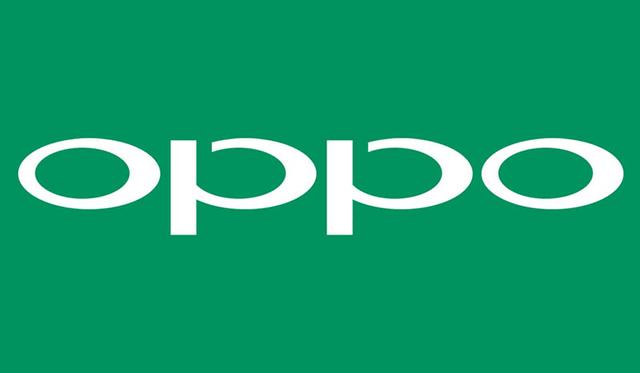The patent disputes between Chinese mobile phone manufacturers and Qualcomm have gradually receded with the signing of one patent agreement. Now, OPPO has also signed a 3G/4G Chinese patent license agreement with Qualcomm. Up to now, 99.9% of Chinese mobile phone manufacturers have already been associated with Qualcomm. The 3G/4G patent issue reached a licensing agreement.
Qualcomm has strong capabilities in 3G/4G technology. With its military CDMA technology for civilian communications, Qualcomm launched the IS-95 standard and became the second-generation mobile communications system that competes with GSM in Europe. Afterwards, CDMA was promoted to represent the development direction of wireless communication technology. The three international standards of the third generation mobile communication, WCDMA, CDMA2000 and TD-SCDMA all adopt CDMA technology. The CDMA technology patent is undoubtedly a monopoly by Qualcomm. Qualcomm started with a huge amount of royalties collected from a small company and became an industry giant. It can be said that Qualcomm's patent fees are a can of domestic mobile phones can not go around.

It is impossible for a company that does not pay a patent license fee to become a large corporation
With the technology of Qualcomm, it pays to pay for the patent fee. Why did Chinese mobile phone manufacturers not be willing to pay royalties? The reason is very simple and expensive. However, last year, the National Development and Reform Commission of the People's Republic of China rectified Qualcomm's abuse of market dominance in the Chinese market. First, it charged unfair high-price patent licensing fees, and second, it had no legitimate reason to tying necessary patents for non-wireless communication standards. Permits, the third is to attach unreasonable conditions in the sale of baseband chips, and imposed a fine of 6 billion yuan on Qualcomm.
After this rectification, the mobile phone manufacturers and Qualcomm signed a lot of smooth roads. Up to now, more than 80 major domestic manufacturers including ZTE, Huawei, Xiaomi, Qikuo, Lenovo, TCL, and Haier have re-entered patent licensing agreements with Qualcomm.
A company that does not pay a patent license fee cannot become a large corporation. In fact, this statement is not only reflected in the number of parties that pay patent fees, but also in the attitude of treating patents. Paying attention to patents is the performance that a large company should have. Although the signing of the patent between OPPO and Qualcomm was not too early, it also showed that the OPPO's attitude toward patents has undergone a major transformation. According to the statistics of the website of the State Intellectual Property Office, the data as of the end of October 2015 showed that there were a total of 5,276 patent applications that were open for inspection by OPPO, including a total of 4,357 patent applications for inventions.

To expand overseas markets without patents
In fact, this also reflects a change in the global mobile phone market, that is, the current mobile phone market is not the only one in China. It is obviously different from the mobile phone market two years ago. The domestic mobile phone requires better development and overseas. Market expansion.
The main reason is that the increasingly fierce competition in the Chinese market, mobile phone manufacturers can hardly find new dividend growth points, Moreover, the consumer concept of consumption has been solidified by several major manufacturers, unable to squeeze into the top five mobile phone manufacturers, want to It is difficult to maintain a good situation. Therefore, the competition among mobile phone manufacturers in the Chinese mobile phone market can be said to be the top five disputes.
At present, the top five domestic mobile phone shipments have undergone major changes from two years ago. Domestic mobile phone shipments in the second quarter of 2016 show that Huawei, OPPO, vivo, Xiaomi and ZTE occupy The top five positions. It also means that, besides Apple and Samsung, these mobile phone brands can now be recognized by consumers.
Therefore, mobile phone manufacturers must open up new markets. Emerging markets in Southeast Asia, India, Africa, South America, and Russia are the starting points for domestic mobile phones. Some handset manufacturers also need to open up new markets for development. Huawei, Lenovo, ZTE, and other companies are actively exploring Europe and the United States. And other developed markets. Going abroad, there is no doubt that the umbrella of patents. Previously, Xiaomi’s patent prosecution in the Indian market was a tragic lesson.
However, some companies are still not very happy to pay royalties. For example, Meizu has not been finalized because of Qualcomm's lawsuit because of the failure to negotiate with the Qualcomm patent agreement. Meizu is now almost the only mobile phone manufacturer that does not pay royalties to Qualcomm.

Although the essence is cooperation, the capital negotiated with Qualcomm is a big problem.
Phone manufacturers and Qualcomm signed a patent fee in the end is still a cooperation. Qualcomm charged royalties and mobile phone manufacturers enjoyed their patents for production activities and profitability. At this time, how much negotiating capital the mobile phone manufacturer has has a great influence on the way of cooperation with Qualcomm. For example, the OPPO and Qualcomm reached a patent cooperation agreement, and there are no specific figures for the patent fees to be paid. It only reveals that they are consistent with the provisions of the rectification measures submitted by Qualcomm to the National Development and Reform Commission of the People's Republic of China.
In fact, OPPO cannot be regarded as how old the history is. It can even be said to be a new market in some ways. However, in a short period of time, OPPO has ranked fourth in the global smart phone market and second in the Chinese market. This ranking gives the OPPO the capital to negotiate with Qualcomm on an equal basis. Therefore, reaching an agreement with Qualcomm now has a special meaning.
On the other hand, Meizu will be inferior to many others. For example, in the second quarter of 2016, Meizu was not seen in the top ten domestic mobile phone shipments. According to the data as of June 28, 2016, Meizu submitted a total of 572 invention patents, 28 invention patents, 44 utility model patents, and 153 design patents. Therefore, why Meizu did not have enough negotiating capital to reach an agreement with Qualcomm must ask itself. Looking at the current situation, Meizu, which lacks the accumulation of patents but hopes that other mobile phone manufacturers don't pay royalties with them, is now almost in a situation where they are fighting alone.
The fat translator in the “Little Soldier Zhang Jian†eats watermelon without asking for price, and also says that the melon’s watermelon is a rotten watermelon, which obviously has a rogue thinking. At present, some mobile phone manufacturers that do not have basic patents for communications do not pay patents to Qualcomm. They have first used Qualcomm’s patented technology. Qualcomm is now asking for money, but finds that the money in its pocket is not enough, but finds a high-sounding one. The reason is that they bring high hats, saying that they can do mobile phones without using Qualcomm technology. There seems to be no difference between the two.
In fact, the attitude towards patents can show that whether it is the payment of patent fees to others or the accumulation of patents, it will have a decisive effect on long-term development. Do not know Meizu fighting alone, the next step will be how to go?
This article from the Tencent News client from the media, does not represent the views and positions of Tencent News
Cassava Dregs Separator,Cassava Processing Machine,Cassava Processing Equipment,Cassava Milling Machine
Hunan Furui Mechanical and Electrical Equipment Manufacturing Co., Ltd. , https://www.thresher.nl